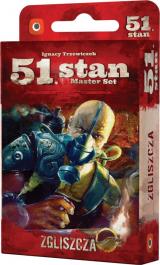

On higher difficulty levels, we're thankful to say that this isn’t an issue, although some may find the general challenge of the higher difficulty levels to be a bit outside their limits. There are only some very, very rare occassions in which that would happen in real life - such as if the seller was in dire straits and without options. You offer £280 for the £350 Park Lane, and they'll predictably decline, but ask you for £300 instead. They'll even counter-offer to ask you for less than the card price in a lot of cases. You can see how poor they are at making trading decisions when they start to offer you £100 for a £180 property, even though you’re sitting on £1,700 and in the dominant position. Fancy picking up Mayfair to go with your Park Lane? Offer the opponent Old Kent Road (£60) and £320 for the £400 property and you’re away. Want all of the railway stations? You'll be able to buy them from your opponents for less than the £800 total it would cost to buy them from the bank. Against “normal” level AI, you get a good challenge until you realise that they’ll accept any trade that’s even close to the card price of a property. Second up, is how out of whack the trading system is with the AI difficulty level. That means that online multiplayer is all but useless, as nobody other than the host ever realistically has a chance of winning, unless the host agrees that they won't quit and then sticks to their word. If the player that started the game goes bankrupt and they understandably decide to quit instead of watching the rest of the game play out, the game ends and nobody wins. The first would be a massive bug (or at least an awful design decision) in the game’s online multiplayer mode. At times, it isn't instantly clear if a property is mortgaged or not, and we’d have liked the “money” portion of the trading screen to allow us to increase and decrease values quicker, as making a big cash offer to someone for something takes longer than it should but again, these aren't major big deals.īut there are a handful of big deals to…well…deal with, though. The way everything is laid out makes a good deal of sense, and there are very few moments where you’re left wondering how you get something done.

Well, a relatively quick pace for Monopoly, anyway.
#MONOPOLY PLUS SPEED DICE RULES ZIP#
Though there should be, dammit.īack on the classic board though, things zip along at a relatively quick pace. That’s no big deal, though for the remainder of this review, we'll use the good old Pound symbol - mainly because there's no Monopoly Money currency symbol on a keyboard. The sharp-eyed will notice that the currency used in-game is “Monopoly Money” rather than Dollars or Pounds Sterling, though. There’s an undeniable attention to detail and reverence to the source material going on here, and the developer should be applauded for that. The property prices are identical to the original boxed version of the game, so the most expensive location (Mayfair/Boardwalk) is £400 - as it should be - rather than being converted into the millions and billions that some current Monopoly sets have gone with. So the British version gives you Mayfair and Park Lane, whereas the US language selection switches them to Boardwalk and Park Place, for example. Depending on which language you select at startup, you get the properties relevant to that country’s version of the game. Monopoly himself, through to the original designs for the Chance and Community Chest cards.

Launched as part of the Monopoly Party Fun Pack alongside My Monopoly and Monopoly Deal (but available standalone, hence this review), the game manages to avoid a lot of the pitfalls that have caused other attempts to fail.Īll of the iconic Monopoly stylings are in place in Monopoly Plus, from the fancy Mr. We're glad to say that neither of these issues are present with Ubisoft’s new take on the franchise, Monopoly Plus.


 0 kommentar(er)
0 kommentar(er)
